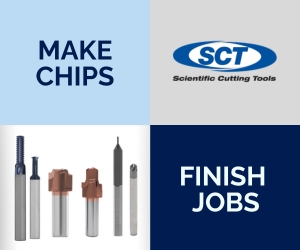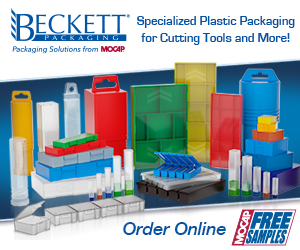
Okuma America Corp., Charlotte, N.C., recently named Ted Winkle as coordinator of the company's Houston Tech Center (HTC). Winkle will oversee management of all HTC activities as well as support sales and Okuma's distribution partner Hartwig.
With previous supervisory and engineering positions in the manufacturing industry, Winkle has extensive sales and technical training experience. His more than 20 years experience as a design engineer operating Okuma machines has allowed him to acquire comprehensive knowledge of turning and milling applications, not to mention tooling and fixture design.
“I first learned to program and operate a CNC machine on Okuma lathes with OSP-5020 controls, and have been partial to the brand ever since," Winkle said in a company news release. "Okuma has been an important part of every stage of my career, so being able to join the Okuma team is kind of like a homecoming for me.”
Winkle, who holds a bachelor's degree in industrial technology from the University of Texas at Tyler, will be based in Houston.
Contact Details
Related Glossary Terms
- computer numerical control ( CNC)
computer numerical control ( CNC)
Microprocessor-based controller dedicated to a machine tool that permits the creation or modification of parts. Programmed numerical control activates the machine’s servos and spindle drives and controls the various machining operations. See DNC, direct numerical control; NC, numerical control.
- fixture
fixture
Device, often made in-house, that holds a specific workpiece. See jig; modular fixturing.
- gang cutting ( milling)
gang cutting ( milling)
Machining with several cutters mounted on a single arbor, generally for simultaneous cutting.
- milling
milling
Machining operation in which metal or other material is removed by applying power to a rotating cutter. In vertical milling, the cutting tool is mounted vertically on the spindle. In horizontal milling, the cutting tool is mounted horizontally, either directly on the spindle or on an arbor. Horizontal milling is further broken down into conventional milling, where the cutter rotates opposite the direction of feed, or “up” into the workpiece; and climb milling, where the cutter rotates in the direction of feed, or “down” into the workpiece. Milling operations include plane or surface milling, endmilling, facemilling, angle milling, form milling and profiling.
- turning
turning
Workpiece is held in a chuck, mounted on a face plate or secured between centers and rotated while a cutting tool, normally a single-point tool, is fed into it along its periphery or across its end or face. Takes the form of straight turning (cutting along the periphery of the workpiece); taper turning (creating a taper); step turning (turning different-size diameters on the same work); chamfering (beveling an edge or shoulder); facing (cutting on an end); turning threads (usually external but can be internal); roughing (high-volume metal removal); and finishing (final light cuts). Performed on lathes, turning centers, chucking machines, automatic screw machines and similar machines.









